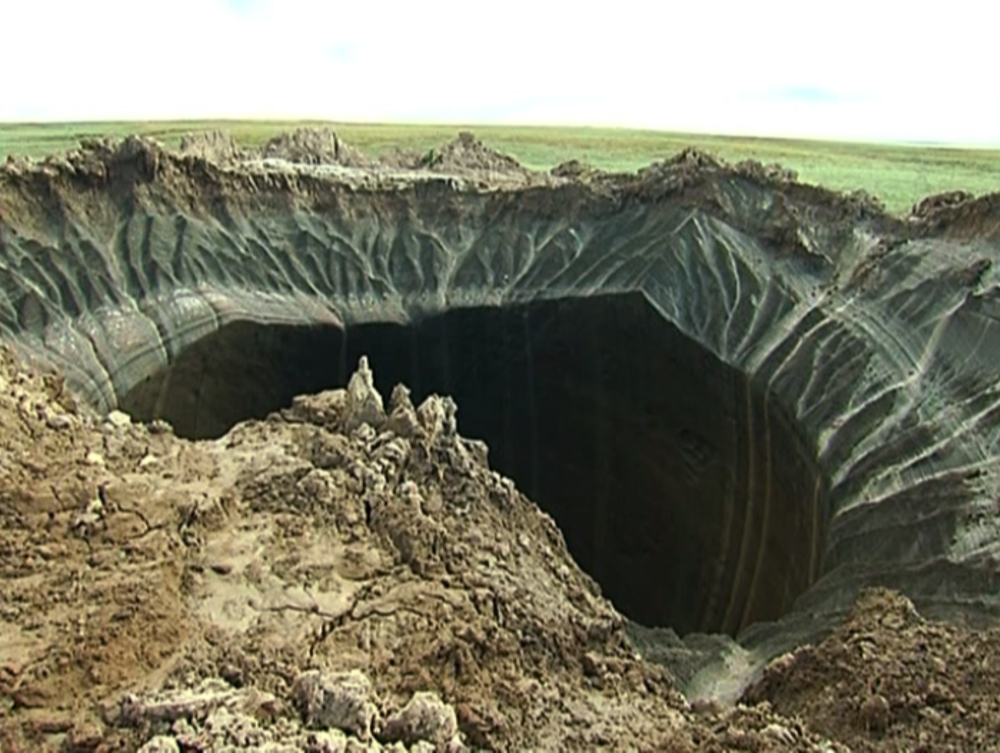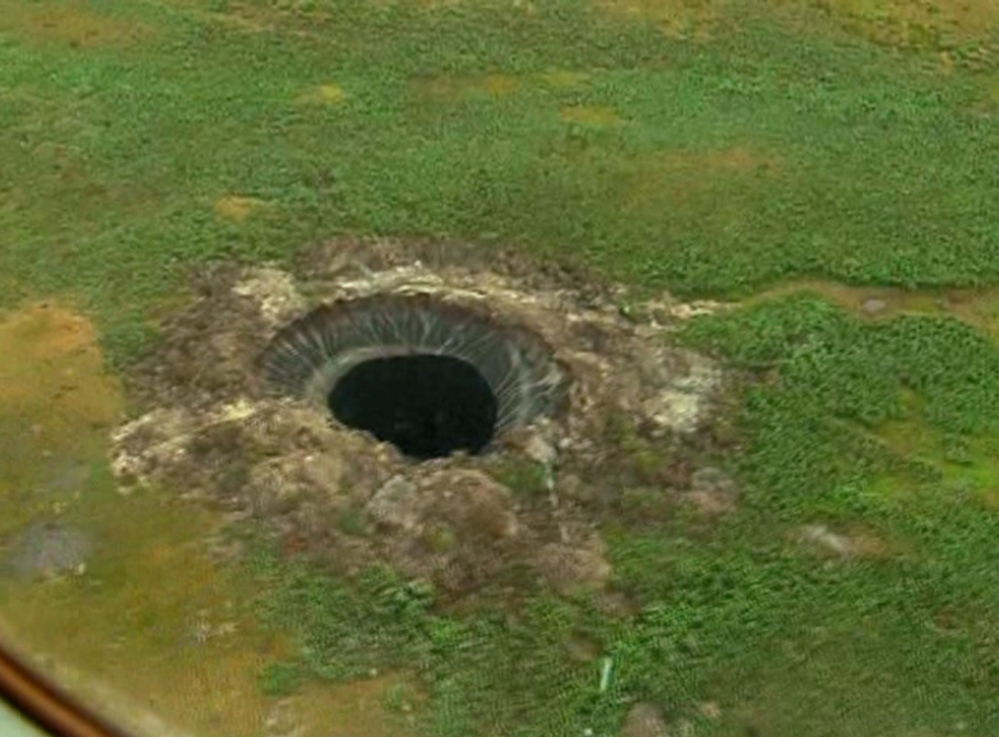MOSCOW – Russian scientists say they believe a 60-meter (66-yard) wide crater discovered recently in far northern Siberia could be the result of changing temperatures in the region.
Andrei Plekhanov, a senior researcher at the Scientific Research Center of the Arctic, told the AP Thursday that the crater was mostly likely the result of a “build-up of excessive pressure” underground due to rising temperatures in the region.
Plekhanov on Wednesday traveled to the crater, some 30 kilometers (18.64 miles) from the Bovanenkovo gas field in the far northern Yamal peninsula. He said 80 percent of the crater appeared to be made up of ice and that there were no traces of an explosion, eliminating the possibility that a meteorite had struck the region.
Send questions/comments to the editors.




Success. Please wait for the page to reload. If the page does not reload within 5 seconds, please refresh the page.
Enter your email and password to access comments.
Hi, to comment on stories you must . This profile is in addition to your subscription and website login.
Already have a commenting profile? .
Invalid username/password.
Please check your email to confirm and complete your registration.
Only subscribers are eligible to post comments. Please subscribe or login first for digital access. Here’s why.
Use the form below to reset your password. When you've submitted your account email, we will send an email with a reset code.